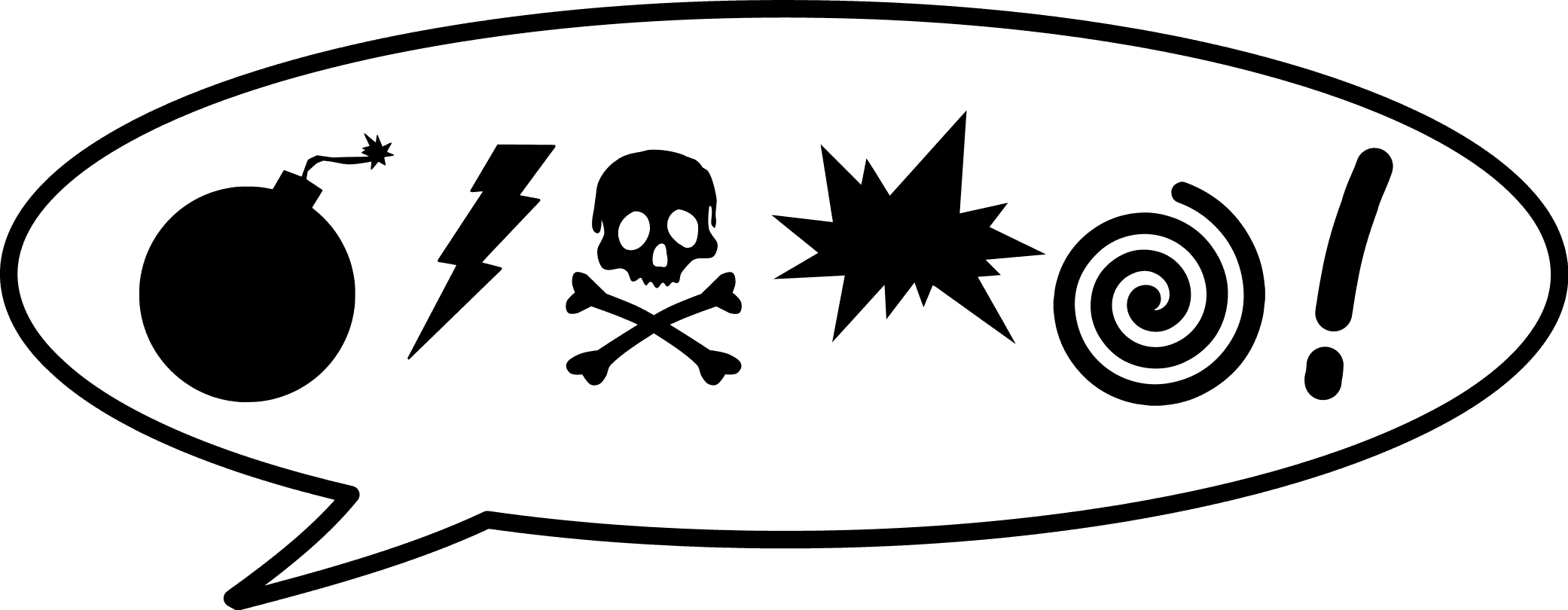- 5-minute read
- 6th August 2020
Heck and Darn! How and When to Swear in Writing
Authors use swear words in writing for various reasons, including to express strong emotions, add emphasis, shock readers or break taboos, or just to reflect how people talk in the real world (e.g., in dialogue).
But swearing can also offend people, especially if it is gratuitous. When, then, is it okay to swear in your writing? Key factors include:
- Who you are writing for and how sensitive they are to profanity.
- How formal or professional the document needs to be.
- The intensity of the swearwords you use in your writing.
In this post, then, we’ll look at when (and when not) to swear in your writing, plus what you can do instead of swearing when it isn’t appropriate.
Who Is Your Audience?
The biggest factor when deciding whether to use profanity in your writing is the target audience. For example, swearing is obviously inappropriate if you are writing for children. Likewise, if you’re writing for adults who have very traditional views, they may be easily offended by bad language.
In cases like these, it’s best to avoid any swearing or to keep it very mild.
Swearing in Formal Writing
Swear words are rarely, if ever, appropriate in formal business or academic writing. At best, it would seem unprofessional. At worst, you could lose marks on an essay or lose a client at work.
There are some exceptions to this: if you’re studying the history of offensive language, for example, you will need to include the terms you’re discussing. But even in cases like this, you would restrict profanity to examples or quotes, not use it as part of your general writing style.
Swearing in Informal and Creative Writing
In less formal writing, there is much more room for profanity! If you’re simply emailing a friend, for instance, you are welcome to be as obscene as you like (as long as the recipient is comfortable with bad language).
In creative writing, meanwhile, swearing can be a key part of your writing style. In gritty war or crime novels, for example, a little profanity can help to create a realistic atmosphere. But you should only do this when it fits the context: constant cursing may feel out of place in a period drama about the upper classes, for instance, since we would not expect the well-mannered characters in such a book to swear all the time.
If you’re unsure about whether to use swear words in your creative writing, look at some books in your genre for pointers. Do the narrators or characters use swear words? Do they fit the tone of the novel as a whole?
Intensity of Swear Words
You may also need to consider the intensity of the swear words you use in your writing. Some swear words, for example, are considered very offensive (e.g., the f-word or the c-word). And while stronger profanities are more likely to have an impact, they are also more likely to cause offence.

Other swear words are much milder, though. And a character saying “drat” or “darn” is unlikely to shock anyone these days. So if you want to swear without causing offence, it is best to pick a mild swear word.
Find this useful?
Subscribe to our newsletter and get writing tips from our editors straight to your inbox.
The intensity of swear words can also vary across cultures. The word “w*nker,” for instance, is much less offensive in the USA than the UK. As such, American TV shows have used it for comic effect, but then caused much outrage when they were broadcast before the watershed in the UK. And Australia is famous for its relaxed attitude to swearing.
Even swear words like “damn” or “hell,” which may seem mild by modern standards, can offend people who are very religious. As such, if you are going to swear in writing, it pays to choose your profanities carefully!
Alternatives to Swearing
What, then, can you do instead of swearing in your writing? If all you’re looking for is a way to add emphasis to something, the simplest approach is to use another intensifier. For example, compare the following:
The show was bloody amazing!
The show was really amazing!
This might lack the impact of a swear word in some cases, but it expresses the same thing without any risk of causing offence.
There are also many creative ways to tone down swear-worthy moments, which can even add a touch of humor! These include:
- Child-friendly alternatives to curse words: e.g., Flipping heck!
- Using symbols in place of swears: e.g., What the f*@% are they thinking?
- Completely made-up words that have a similar sound or feel to existing swear words: e.g., “frak” in Battlestar Galactica or “smeg” in Red Dwarf.
These will give you all the fun of swearing without any of the offence!
Summary: When to Swear in Writing
Whether to use swear words in your writing is ultimately a matter of personal preference. But we can offer some helpful guidelines on the topic:
- Do not use swear words in formal business or academic writing.
- Think about whether your audience would be offended by bad language.
- Only use swear words in creative writing when it fits the context.
In general, moreover, it is wise to hold back on profanity in writing. The odd swear word can be expressive, adding emotion and emphasis to what you’re saying. But excessive cursing will blunt this effect, so the best approach to swearing is usually to save it for when it will have the greatest impact.
To make sure your writing strikes the right tone every time, moreover, why not try out our professional proofreading services?




